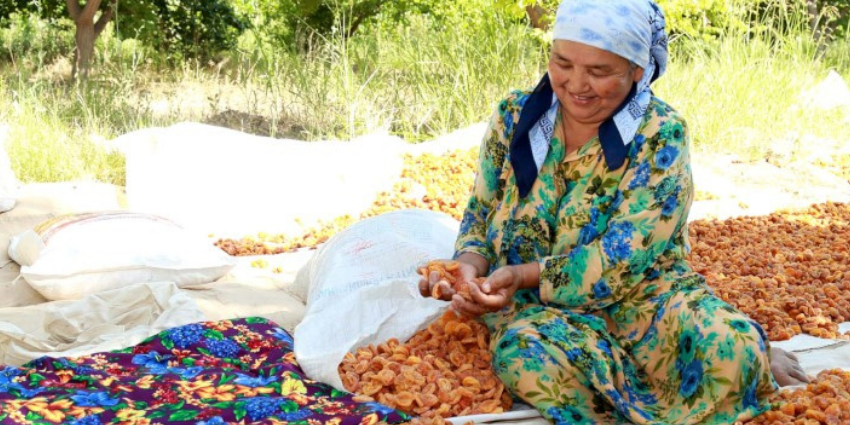
Solidarity Bankers is a skills volunteering programme launched by the Foundation and Crédit Agricole S.A. in 2018. The programme has a twofold objective: on the one hand, support microfinance institutions and social impact enterprises financed by the Foundation with technical assistance, and on the other hand, enhance the skills of Group employees who want to invest themselves in projects with high social impact.
HUMO is a microfinance institution in Tajikistan, which aims to support vulnerable and underserved populations living in rural areas through financial and advisory services for small businesses. Julien Leroy, Innovation Leader at CA-CIB accompanied the institution in the transformation of its business.
Feedback on the programme with the interview of Firdavs Mayunusov, Finance Officer at HUMO.
1) Why was the optimization of your business model important for your institution?
The financial sector has long been one of the most conservative and non-digitalized industries in the world. Experience shows that the introduction of innovations and new technologies dramatically increases competitiveness and improves customer experience. However, for the development of innovations and cutting-edge solutions, it is important to reengineer the business model and organizational structure.
17 years ago, Humo was launched to improve access to finance and social development in Tajikistan. Today, the requirements for financial products are changing rapidly. It is important to constantly evolve and transform into a tech company, not just a financial institution. This is the key to reaching the mission and unlocking the potential of the region. Therefore, we have begun the digital transformation and are making the company structure more flexible and product-oriented.
2) What did you expect from the Solidarity Banker? Do the results match your expectations?
Humo expected advice and guidance on business transformation. Thanks to Solidarity Bankers, we were able not only to understand our weaknesses, but also to find new opportunities for growth and reinforce business model. Now, two years later, we have implemented most of the recommendations and started digital transformation. We were able to take a fresh look at the business model and develop a transformation strategy. The results exceeded expectations.
3) What were the priorities defined following the recommendations made?
We thought about the role of innovation and organizational change for business development. The company must be more flexible and faster to compete in the market. First of all, we opened a new Product Department to manage cutting-edge financial solutions. Then we began to rethink the customer experience and opened a Sales Department. Finally started digital transformation and implemented agile methodologies. This made it possible to become one of the most technological players on the market.
4) 2 years and a bunch of Covid-19 waves later, what is the major mark the Solidarity Banker left at Humo?
Over the years, Humo has changed the organizational structure, strengthened the business model, and identified opportunities. Optimized core business processes and minimized bureaucracy. The company has become more agile, strategy-focused and has launched several digital products. We attracted new user segments and became one of the leading FinTech in Tajikistan. Thanks to the Solidarity Banker, Humo was able to choose the right path of development and realize the potential for growth. Today Humo is undisputedly one of the recognized market leaders despite the challenges of Covid-19, legislation, and socio-economic development.